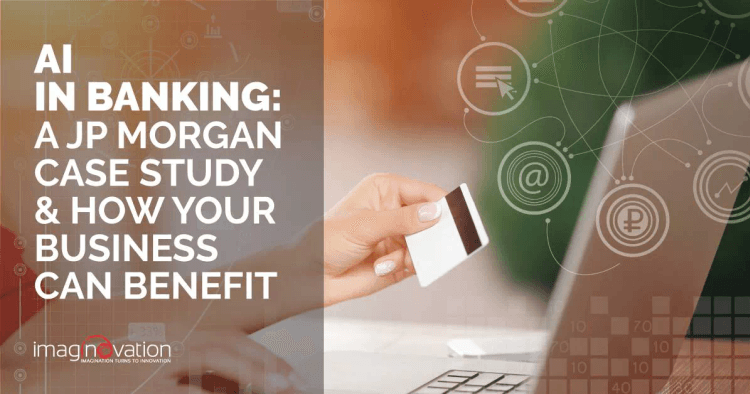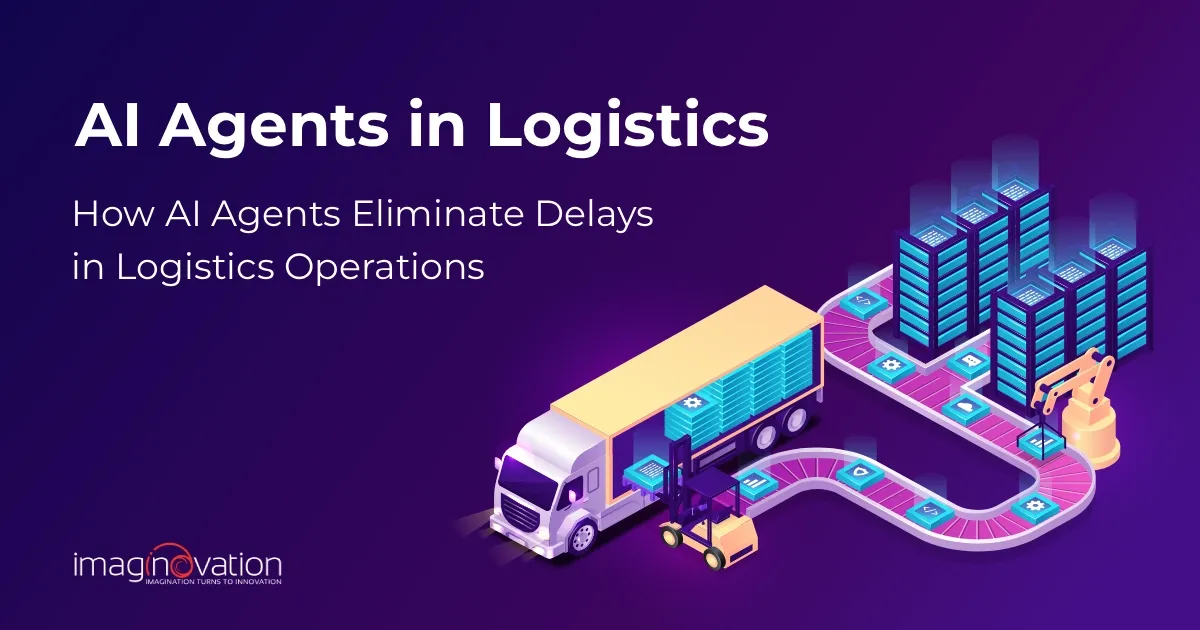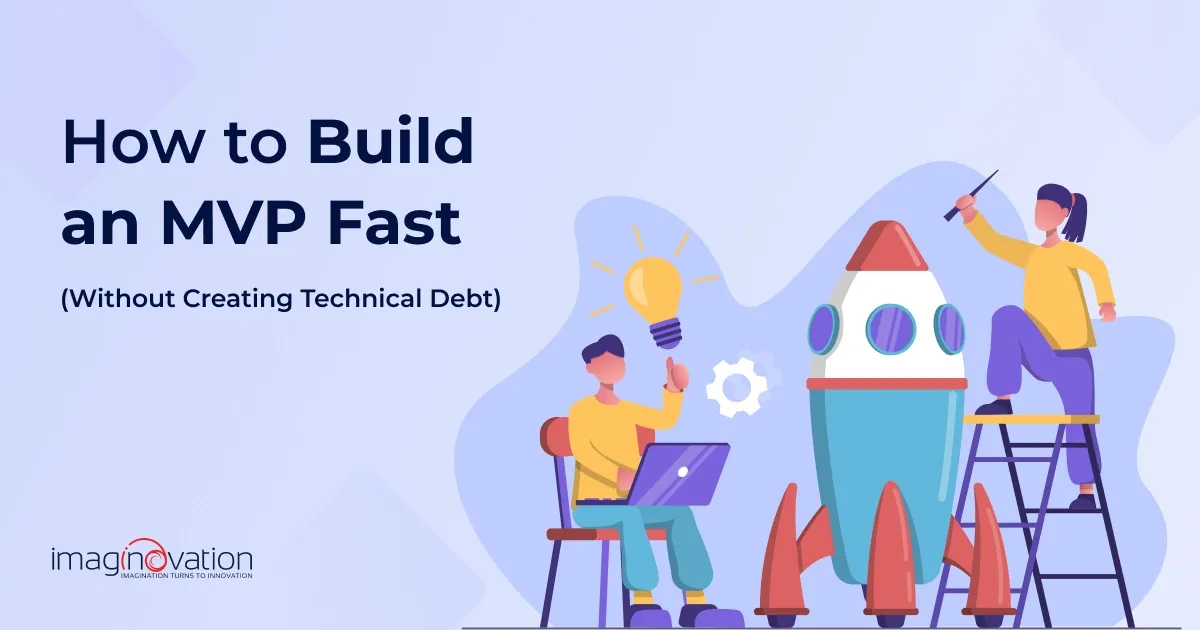To estimate the cost of building a website or an app, use our app cost calculator tool.
Artificial intelligence (AI) is becoming a behemoth in the banking and financial services sector. The field of artificial intelligence has produced several cognitive technologies, and as forward-thinking executive managers and business owners, you must be actively exploring new AI in financial services.
The power of AI in investment banking is already taking the industry by storm. To date, artificial intelligence and machine learning have facilitated the reduction of risk and fraud, enhancing marketing, improving underwriting, and upgrading customer service—and this is just the beginning.
There are plenty of opinions by thought leaders. According to CEO and co-founder of iRobot, Colin Angle, it's going to be interesting to see how society deals with artificial intelligence, but it will be cool.
It may be challenging to spell out how society or firms deal with new tools and technology, but ultimately, organizations that don’t anticipate changes driven by AI are likely to be left behind. Emerging technologies can massively impact the way you do business.
Let’s look at artificial intelligence in the banking case study that can set the ground for establishing opportunities for your business and customers.
In this article, we will see how one of the biggest banks in the United States, JP Morgan Chase & Co., is tackling a slew of mundane tasks with the use of AI. We will also go through applications of AI in financial services and see how it impacts the finance sector.
JP Morgan Artificial Intelligence—COiN: The Story and Main Takeaways

Inside-Out: The Vision
We believe stories mostly start “inside out”—reflecting on your organizational commitment, values, and vision. Technological success in any organization can easily be attributed to the involvement of thought leaders that reverberates throughout the entire firm.
You can feel this pulse at JP Morgan Chase & Co.—the American multinational investment bank and financial services company and the biggest bank in the United States, with more than 240,000 employees serving millions of customers.
The multinational has an unwavering commitment aimed at decreasing costs, making operations more efficient, and improving clients’ experience. The bank has been an early adopter of disruptive technologies like Blockchain.
“Distributed ledger technology presents a once-in-a-generation opportunity to strengthen the financial services as a whole. Digital Asset sits at the apex of finance and technology, uniquely positioning them to realize the promise of this new innovation, and I’m delighted to be able to contribute to the firm’s next phase of success,” says Sallie Krawcheck, one of the highest-ranked women ever to have worked on Wall Street.
Technology enables the company to speed transaction execution and reduce trading errors. Matt Zames, the former COO, highlights that technology is at the core of what they do. Advances in technology are making multinational firms improve customer experience and differentiating their businesses today and for the future.
The thought leaders recognized the exciting opportunities with machine learning to drive new capabilities for the firm, customers, and clients. In 2016, they established a center of excellence within Intelligent Solutions to explore and implement a growing number of use cases for machine learning applications across the firm.
Why was this needed? What were the triggers?
Demystifying Triggers: The Pain Points
Artificial intelligence is on the brink of revolutionizing the legal profession. One of the pain points in the legal profession is document review, where corporate lawyers scour large chunks of data and sort and identify important pieces for litigation. The task is time-consuming, mundane, and prone to biases and errors.
Can one bring efficiency to the document review process? In a study by McKinsey & Co., it is highlighted that nearly a quarter of lawyer work output can be automated. How about lawyers’ incentives for the process? The law firms typically bill by the hour, and quite often, clients try to reduce the hours charged. An academic study by Frank Levy at MIT and Dana Remus at the University of North Carolina School of Law concluded that adopting machine learning could reduce lawyers’ billable hours by about 13 percent.
The future of the legal profession is on the verge of significant changes. It is quite evident why many law firms are finding ways to automate the document review process. Legal experts feel that developers can implement cognitive computing technology in the process with visible benefits.
JP Morgan has recently emerged as a pioneer in this trend, showing great opportunities for firms to increase efficiency and cost-effective services for their clients.
According to Alicia Tillman, global CMO of SAP: “When time isn’t spent on repetitive, administrative tasks, that frees up a tremendous share of mind that can be dedicated to the creative solutions and experiences that stand out for customers. In today’s market, that couldn’t come at a more opportune time…Marketers will be able to push boundaries further and tell better stories because they’ll have the tools and the resources to do so.”
Let’s look at JP Morgan’s solution—COiN.
Building Solutions: COiN (Contract Intelligence)
The bank typically employs lawyers and loan officers who spend about 360,000 hours each year tackling mundane tasks, including interpreting commercial loan agreements. The firm has successfully managed to cut the time spent on this work down to a matter of seconds using machine learning.
JP Morgan implemented a program called COiN—a short-form for Contract Intelligence platform that uses unsupervised machine learning, which means there would be minimal human involvement post-deployment.
COiN runs on a machine learning system powered by a new private cloud network that the bank uses, automating the document review process for a particular class of contracts. The first stage of testing the COiN platform included the review of the bank’s credit contracts.
The essential technique used is image recognition—where the software can compare and distinguish between different agreements.
The bank reiterates that in an initial implementation of this technology, the algorithm would be able to extract about 150 relevant attributes from annual commercial credit agreements in seconds compared to 360,000 person-hours under manual review. The algorithm may identify patterns based on wording or location in the contracts.
Besides saving thousands of person-hours, the new software is proving to be cost-effective, more efficient, and less prone to errors. The COiN is just the start—the firm is committed to its technology hubs for teams specializing in big data, robotics, and cloud infrastructure to find new sources of revenue while reducing expenses and risks.
Let’s now look at some strategies that have made COiN a success.
At the Core: The Strategy Takeaways
At the heart of the success of COiN have been years of investment in technology and building a strong core team that understands technology.
Hiring the Best
JP Morgan has been engaging the best people in the last few years and finding the best AI talent in the world. Some high-profile hires include Manuela Veloso, the head of the Machine Learning Department at Carnegie Mellon and a renowned AI Researcher, who will become JP Morgan’s Head of AI Research starting July 2018. Georgia Tech Professor Tucker Balch was hired as Managing Director of AI Research in Atlanta in 2019.
Manuela partners with the firm’s existing data analytics and quantitative research teams and spearheads collaborations with universities and research institutions. In an interview with Patrick Burton from JP Morgan, Manuela explained that they were working on incorporating human values within the new techniques so that the output was as unbiased as possible.
When it came to building teams that required hiring, Manuela highlighted that they were looking for people who were excited about automation. They were hoping for people who would care about the underlying technologies, the understanding of ethics, values, and the vision to build something more significant than what is existing.
It is quite fascinating to see the firm’s clarity behind the new hires and partnerships.
Technology Investment
Another critical facet is the investment in technology, which strengthens the firm’s research and development body.
In 2017, JPMorgan’s total technology budget was 9 percent of its projected revenue—that was double the industry average. One-third of the budget was for new initiatives, a figure that the firm wished to take to 40 percent in a few years.
JP Morgan recently reiterated its ability to invest 11 billion dollars in a large number of technologies simultaneously—to fuel a team of 50,000 technologists. The company also invested in partnerships with high-profile startups, including OnDeck and Roostify, to the tune of $600 million.
To meet the growing demand for skilled workers, JPMorgan Chase also announced a $350 million, a five-year global initiative to prepare for the future of work. The initiative would focus on two fundamental approaches to ensure high-quality education and job training programs to help more people and reach more communities.
The heart behind the success of COiN is the best of the firm’s AI team and the continuous technology investment, which reiterates the bank’s intent to have cutting-edge technology in its applications.
Let’s look at some of the concerns and the road ahead.
The Dilemma and the Road Ahead
JP Morgan is exploring newer ways to deploy COiN for more complicated filings. The bank hopes that the software will be able to give an unbiased first impression—and a persistent question is whether new technologies will displace law firms in the future.
While COiN is still in its initial phase, in the future, with refinement in its algorithms, there is hope for better predictive abilities.
When it comes to job displacement—according to some general estimates, by 2030, about 30 percent of the U.S. labor market and 375 million workers globally would need to change jobs, including upgrading their skills to advance within the workforce.
JP Morgan has already made philanthropic investments in local education and job training programs that are proven to help more people secure in-demand and good jobs.
Main Takeaways: You can’t be a leader in the industry without exploring powerful tools and harnessing the opportunities. JPMorgan Chase has a clear view of the future, which is why its technologists work on a variety of viable solutions. It is quite evident that, as organizations, we all can learn from top-tier tech giants and optimize their success stories.
So, how does this approach of JP Morgan help you improve your business? Let’s see.
How Can Your Business, Clients, and Customers Benefit?

The entire organization must be committed to optimizing new technology to remain competitive in the market. Here’s a snapshot of some recent trends and applications of machine learning in banking that you can benefit from based on the JP Morgan case.
Table 1. Snapshot of Technology Trends in Banking
| \\\*\\\*Area\\\*\\\* | \\\*\\\*The AI and ML Advantage\\\*\\\* | \\\*\\\*Learning from JP Morgan Takebacks\\\*\\\* |
| Credit Decisions | - AI-based credit scoring can utilize more sophisticated rules than traditional credit scoring processes. - Banks can determine which applicants have higher default risks and are more credit-worthy. | - Leveraging technology (investing in R&D and exploring new technologies) can eliminate bias involved in the process. |
| Risk Assessment | - AI can reduce risks for banks and customers. | - Refining algorithms can reduce risk assessment to minutes. |
| Fraud Prevention | - AI and ML can offer precise results from an algorithm that is not prone to error, reducing credit card fraud. | - Machine learning can detect anomalies in spending and alert the cardholder. |
| \[Process Automation](/business-process-automation-services/) | - Automating repetitive and mundane tasks frees up resources and capacity to provide better service to customers. | - JP Morgan’s COiN automated the processing of legal documents, extraction of data, and review of certain types of legal contracts—reducing 360,000 person-hours. |
The rise of AI and ML in the financial industry is revolutionizing the business landscape. Building on the success story of JP Morgan, it would make sense to relook at your organizational vision towards technology and take concrete steps to implement the newer technology into your company processes.
Leverage AI in Your Digital Transformation Journey with Imaginovation
Get ready to AI-power your business! We are an award-winning web and mobile app development company with experience in developing robust AI solutions for businesses of all types.
If you’re interested in leveraging modern technologies in your digital transformation journey, then get in touch with us.











